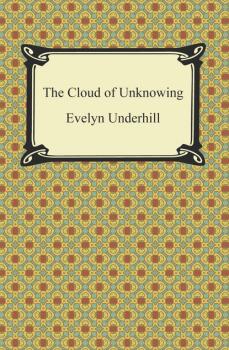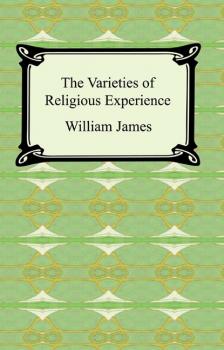ТОП просматриваемых книг сайта:
Религия: прочее
Различные книги в жанре Религия: прочее, доступные для чтения и скачиванияАннотация
There is a general understanding within religious and academic circles that the incarnate Christ of Christian belief lived and died a faithful Jew. This volume addresses Jesus in the context of Judaism. By emphasizing his Jewishness, the authors challenge today’s Jews to reclaim the Nazarene as a proto-rebel rabbi and invite Christians to discover or rediscover the Church’s Jewish heritage. The essays in this volume cover historical, literary, liturgical, philosophical, religious, theological, and contemporary issues related to the Jewish Jesus. Several of them were originally presented at a three-day symposium on “Jesus in the Context of Judaism and the Challenge to the Church,” hosted by the Samuel Rosenthal Center for Judaic Studies at Case Western Reserve University in 2009. In the context of pluralism, in the temper of growing interreligious dialogue, and in the spirit of reconciliation, encountering Jesus as living history for Christians and Jews is both necessary and proper. This book will be of particular interest to scholars of the New Testament and Early Church who are seeking new ways of understanding Jesus in his religious and cultural milieu, as well Jewish and Christian theologians and thinkers who are concerned with contemporary Jewish and Christian relationships.
Аннотация
2,000 years ago an itinerant Jewish preacher was condemned to crucifixion. A man named Simon, from Cyrene, was compelled to help Jesus carry the heavy cross. What did he and Jesus talk about? Eager to learn more about this “rabbi,” Simon returned to Jerusalem the next day. What he learned changed his life, and gave his descendants an incredible secret.
Аннотация
The «Mahabharata» tells the narrative of the Kurukshetra War and the fates of the Kaurava and the Pandava princes who are part of it. Along with the «Ramayana» it is one of two Sanskrit epics of ancient India. The authorship of the work is generally attributed to Vyasa, who is also a major character in the epic. Intermixed within the descriptions of conflict between the warring factions of this epic are numerous philosophical digressions and discussions of Hinduism. One of the more famous of these digressions is the «Bhagavad-Gita», a battlefield conversation between Pandava prince Arjuna and his guide Lord Krishna on a variety of theological and philosophical issues. Also included within the «Mahabharata» are the story of «Damayanti» and «Rishyasringa,» often considered as works in their own right. This sweeping epic, the longest every written in Sanskrit, is widely considered as one of the most important works to ever be authored in any language. This four volume edition collects together the complete epic in a translation by Kisari Mohan Ganguli. Here we have the fourth volume which includes books thirteen through eighteen.
The Works of Saint Anselm (Prologium, Monologium, In Behalf of the Fool, and Cur Deus Homo) - Saint Anselm Anselm
Аннотация
Anselm of Canterbury, later canonized in the 1100's, was a Benedictine monk and philosopher who is known as the father of scholasticism. He is also the founder of the ontological argument, saying that God exists because of his infinite power and authority over mankind. His written works are known for their rationalization of faith based on spiritual truths found within the Christian belief, which is detailed in «Proslogium.» He believed in varying degrees of «good» and «bad,» which meant that there must be an ultimate goodness with which to compare «good» and «bad.» For Saint Anselm in «Monologium,» this ultimate goodness is God. «Why God Became Man» discusses how Jesus Christ was sent to atone for God's dissatisfaction with mankind, defending God's honor and justice. Saint Anselm's ideas were not universally accepted. One rebuttal came in the form of «In Behalf of the Fool,» a response to and critique of Saint Anselm's works written by the Benedictine monk Gaunilo. Today, Saint Anselm's writings, as well as the critique by Gaunilo, remain critical to anyone studying Christian theology. Saint Anselm's rationalization based purely on intuitive reasoning is astonishing. Because Saint Anselm did not rely on empirical evidence for faith, his beliefs were truly a test of his personal faith in God. Saint Anselm and his works are both impressive testaments to the historic and social significance of the Christian religion.
Аннотация
Evelyn Underhill (1875-1941) was a renowned Anglo-Catholic poet and novelist whose works on mysticism were some of the most widely read in the early twentieth century. She and her husband, Hubert Stuart Moore, had no children, but travelled extensively throughout Europe where Underhill pursued her interests in art and Catholicism. As a product of the Edwardian era, Underhill was concerned with exploring the physic, the occult, the mystical, the scientific, and the spiritual in her works. In her later years, she became a lecturer and spiritual leader in the Anglican Church, and proponent of the power of contemplative prayer. In 1922 Underhill edited an anonymous work of Christian mysticism called «The Cloud of Unknowing». The work was written in the late 14th Century in Middle English, and is a treatise about seeking a pure entity of God through contemplation, not through knowledge and intellect. This version is often considered the best translation of the work to modern English.
Аннотация
"The History of the Church" or «The Church History of Eusebius» is a comprehensive ecclesiastical history of the Christian church from the time of Christ to Constantine. Christians and theology scholars will find much of interest in this volume translated by the Rev. Arthur Cushman McGiffert. «The History of the Church» can be read as an excellent companion to the Bible and other religious texts or as a complete religious historical text in and of itself.
Аннотация
"The Varieties of Religious Experience" is William James's philosophical and psychological examination of the nature of religion in human civilization. Based on James's own Gifford Lectures given at the University of Edinburgh in Scotland between 1901 and 1902, James argues that «Scientific theories are organically conditioned just as much as religious emotions are; and if we only knew the facts intimately enough, we should doubtless see 'the liver' determining the dicta of the sturdy atheist as decisively as it does those of the Methodist under conviction anxious about his soul. When it alters in one way the blood that percolates it, we get the Methodist, when in another way, we get the atheist form of mind.»
Аннотация
Thomas a Kempis was a German medieval Christian monk who was born in the late 14th century. His work «The Imitation of Christ» is one of the most widely read Christian spiritual books ever written. The book presents the idea that the study of Christ's life and the emulation of his example is the highest pursuit that man can achieve. Kempis's «The Imitation of Christ» is a spiritual classic and a must read for any ardent follower of Christianity.
Аннотация
"As the 'Book of Enoch' is, in some respects, the most notable extant apocalyptic work outside the canonical Scriptures, it will not be inappropriate to offer a few remarks here on the Apocalyptic Literature generally… Hope is, indeed, the main underlying motive-power which prompted the writers of the Apocalypses. And this hope is the more intensive and ardent in that it shines forth from a background which is dark with despair; for the Apocalyptists despaired of the world in which they lived, a world in which the godly were of no account, while the wicked seemed too often triumphant and prosperous. With evil everywhere around, the Apocalyptists saw no hope for the world as it was; for such a world there was no remedy, only destruction; if the good were ever to triumph it must be in a new world."—From the Introduction.
Аннотация
Ludwig Feuerbach (1804-1972), the immensely influential German philosopher of the 19th century, wrote his most important work «The Essence of Christianity» in 1841. Combined with his numerous other writings, «The Essence of Christianity» contributed to the development of dialectical materialism. Feuerbach is often considered the philosopher who bridged Hegel and Marx. Here is his sharp criticism of Christianity. A staunch atheist, Feuerbach argues that Christianity has wrongfully «projected» and «displaced» elements of the human mind onto nonexistent supernatural, religious objects. This displacement, he argues, fundamentally alters notions of consciousness. Feuerbach works his way through his tractate via the skepticism established by Hegel and Spinoza, among others. Like Nietzsche, Feuerbach made the claim that Christianity need be deconstructed and repudiated for true civil progress to occur. «The Essence of Christianity» shows Feuerbach in full force as an influential member of a new breed of German philosophers. This text, and this author, occupies a significant place in the history of modern philosophy.










